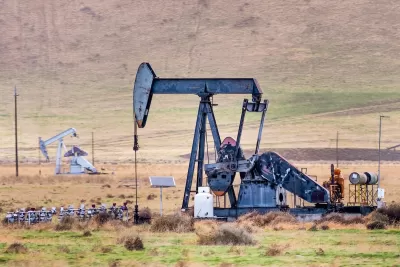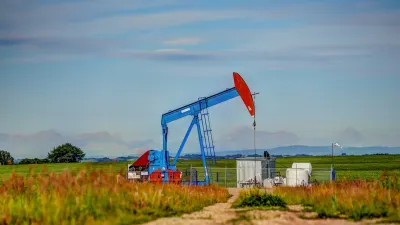The Well Done Foundation has launched 778,000 certified carbon credits to fund the plugging of orphaned oil and gas wells, reducing methane emissions while offering businesses and individuals a way to offset their carbon footprints.

The Well Done Foundation (WDF), a national nonprofit dedicated to plugging orphaned oil and gas wells in the United States, has launched its first certified carbon credits into the market. With an initial release of 778,000 high-integrity carbon credits, the foundation offers businesses and individuals an innovative way to offset their carbon footprints while supporting the remediation of over 2 million orphan wells nationwide. This initiative, backed by partners such as CarbonPath and Cloverly, meets rigorous certification standards, ensuring transparency, traceability, and long-term climate impact. Proceeds from credit sales will fund further well-plugging projects, reducing methane emissions and alleviating the financial burden on taxpayers.
As the first nonprofit to market such credits, WDF emphasizes the dual benefits of environmental remediation and community support. Projects like Palmer Bow Island in Montana have already begun issuing credits, with 268,626 credits immediately available for purchase. WDF's approach aligns with its mission to fight climate change, restore degraded lands, and empower communities. By reinvesting sales proceeds, the foundation creates a sustainable funding cycle to tackle this critical environmental issue.
Partnering with organizations like Ventbuster Instruments, Cloverly, and the Youth Climate Exchange, WDF leverages advanced technology and commerce platforms to ensure the integrity and accessibility of its carbon credits. As the foundation continues to collaborate with local, state, and federal agencies, its market-based strategy offers a scalable and impactful solution to methane pollution and climate change.
FULL STORY: Well Done Foundation Goes to Market with Certified High-Integrity Carbon Credits

Alabama: Trump Terminates Settlements for Black Communities Harmed By Raw Sewage
Trump deemed the landmark civil rights agreement “illegal DEI and environmental justice policy.”

Planetizen Federal Action Tracker
A weekly monitor of how Trump’s orders and actions are impacting planners and planning in America.

Why Should We Subsidize Public Transportation?
Many public transit agencies face financial stress due to rising costs, declining fare revenue, and declining subsidies. Transit advocates must provide a strong business case for increasing public transit funding.

Understanding Road Diets
An explainer from Momentum highlights the advantages of reducing vehicle lanes in favor of more bike, transit, and pedestrian infrastructure.

New California Law Regulates Warehouse Pollution
A new law tightens building and emissions regulations for large distribution warehouses to mitigate air pollution and traffic in surrounding communities.

Phoenix Announces Opening Date for Light Rail Extension
The South Central extension will connect South Phoenix to downtown and other major hubs starting on June 7.
Urban Design for Planners 1: Software Tools
This six-course series explores essential urban design concepts using open source software and equips planners with the tools they need to participate fully in the urban design process.
Planning for Universal Design
Learn the tools for implementing Universal Design in planning regulations.
Caltrans
Smith Gee Studio
Institute for Housing and Urban Development Studies (IHS)
City of Grandview
Harvard GSD Executive Education
Toledo-Lucas County Plan Commissions
Salt Lake City
NYU Wagner Graduate School of Public Service





























